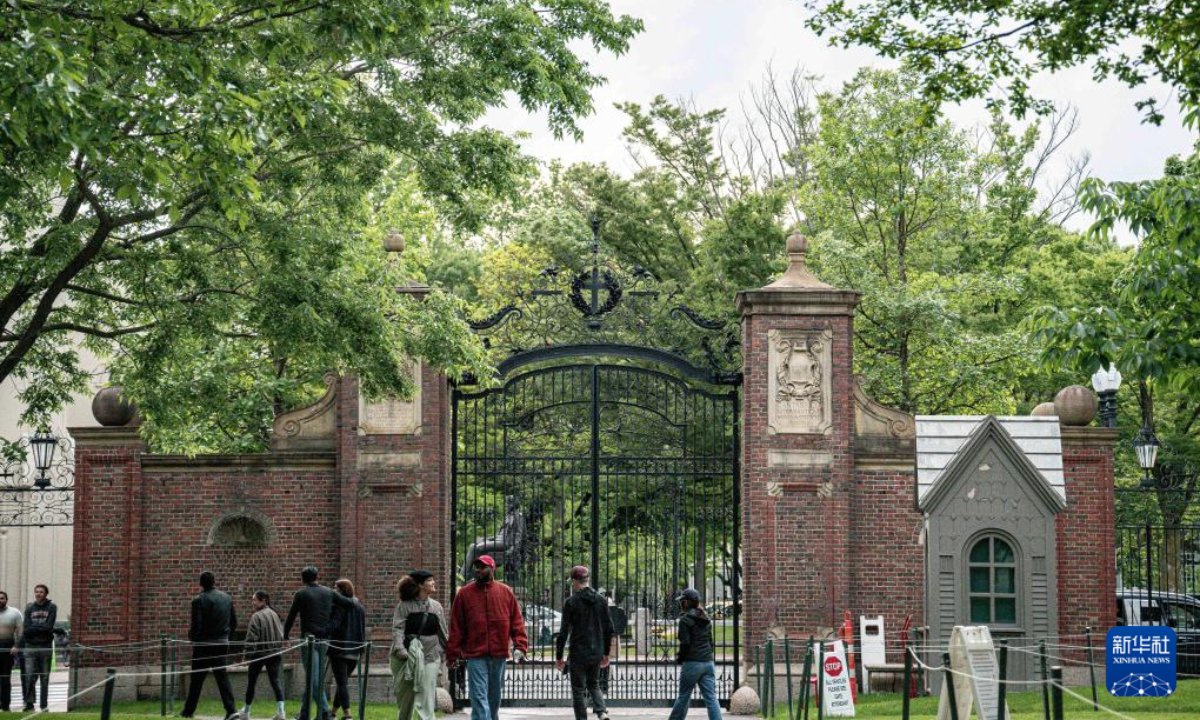(Source:Global Times,2025-05-29)

Photo: Xinhua
US Secretary of State Marco Rubio said Wednesday that the US will "aggressively revoke" visas for Chinese students, Reuters reported. Some Chinese experts criticized the move, warning that politicization of educational exchange will only undermine the foundations of academic collaboration and erode US competitiveness.
In a statement released on US Department of State on Wednesday, Rubio said that the State Department will work with the Department of Homeland Security to aggressively revoke visas for Chinese student, and revise visa criteria to enhance scrutiny of all future applications from China.
This is a clear continuation - and escalation - of the Trump administration's China pressure strategy, said Wu Xinbo, director of the Center for American Studies at Fudan University. It reflects a US attempt to erect a "visa wall" and disrupt people-to-people exchanges, while coordinating with broader containment tools like tech export bans, Wu told the Global Times on Thursday.
The Chinese Embassy in the US had not responded to a request for comment as of press time.
The number of Chinese international students in the US has dropped to about 277,000 in 2024 from a high of around 370,000 in 2019, driven partly by growing tension between the world's two biggest economies and heightened US government scrutiny of some Chinese students, per Reuters.
Wu noted that while the short-term impact will be felt most acutely by Chinese students facing academic and career disruption, the long-term consequences may be more damaging to the US itself. "As the flow of Chinese students — an essential source of global talent — dwindles, the US risks eroding its competitiveness in research and innovation," said Wu.
Li Haidong, professor at China Foreign Affairs University, told the Global Times that Chinese students and scholars are being weaponized as part of a geopolitical strategy. "What we're seeing is an increasingly extreme and short-sighted approach to China-US educational ties. It's a tragic turn," said Li.
Li added that such moves won't meaningfully affect China's technological development or political system; instead, they expose America's own sense of insecurity, institutional fragility, and declining global credibility.
He added that while the narrative of "decoupling" in education and research is gaining ground in Washington, the reality is more complex. "These policies are out of touch with reality. The deeply rooted educational and economic ties between China and the US cannot be easily severed by political manipulation."
Analysts also warn that recent actions, such as the US government's order for embassies and consular sections worldwide to halt new student visa appointments and its ban on Harvard University accepting international students, are damaging the US' global image.
The US government has ordered its missions abroad to stop scheduling new appointments for student and exchange visitor visa applicants as the State Department prepares to expand social media vetting of foreign students, according to an internal cable seen by Reuters on Tuesday.
In response, Chinese Foreign Ministry spokesperson Mao Ning said on Wednesday that China is following the current development. China believes that education cooperation and academic exchanges should not be disrupted.
"We urge the US to protect the lawful and legitimate rights and interests of all international students, including those from China," said Mao.
Wu said that the tightening of US visa policies is expected to continue, although the extent of enforcement may vary depending on factors such as university lobbying, legal challenges, and political dynamics. While some policy reversals are possible, the overall trajectory remains concerning.
This "lose-lose" strategy reflects a broader shift in US tactics. With trade measures yielding limited results, Washington is intensifying crackdown on talent and restricting technology. However, this approach risks weakening both US global competitiveness and its image as an open, innovative society, said Wu.
The US government's recent crackdown on universities, including Harvard, is undermining America's traditional strength in education and innovation. These policies damage the global reputation of US higher education and weaken the country's soft power, amounting to a serious setback, said Li.
They also hinder US universities from attracting top global talent, as more students and scholars now choose to pursue opportunities in other countries and regions, said the expert.



